Contents
When we think of liberalism, the concept of freedom immediately comes to our mind. After all, this concept is derived from the Latin word “liber” which means freedom. However, freedom, one of the most fundamental human rights, also appears as a dangerous phenomenon when taken to extremes. On the other hand, it is obvious that human history is full of examples of the fight between freedom and captivity. We sometimes see this fight for freedom in the rebellion of Spartacus, and sometimes in the wars of independence of exploited countries.
Before considering this worldview, it is important to thoroughly understand competing or complementary ideologies such as imperialism, capitalism, and communism. Meanwhile, we should not forget that there are people who hide behind such sacred and pleasant-sounding concepts and want to use them as tools for their evil intentions. In order to protect ourselves from these kind of evil, we need to learn the content of such concepts better and improve ourselves thoroughly. Now, if you wish, let’s move on to theoretical definitions on the subject.
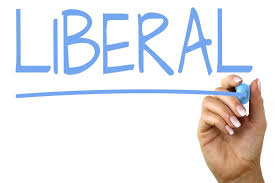
What is Liberalism? An Overview of the Philosophy
In this context, if we come to today, liberals are in a very powerful and dominant position in world governance. Of course, the relationship between this situation, democracy, individual freedoms, competitive economy and less state intervention and the correlation between them are the subject of social sciences. Here we will discuss the subject with its basic features without going that deep 🙂
If we look at it in terms of personal development and career management, increasing our intellectual level by having at least a basic idea about thought systems such as liberalism, capitalism, socialism etc. will put us ahead of other candidates. In this sense, we aimed to make an analysis about liberal thought without going into too much detail. After all, in a world where countries governed by liberal democracy are rich and peaceful, it is important to get to the essence of this concept.
At this point, the liberal view believes that “the individual will maximize his welfare in an environment where individuals are free, the rule of law is essential, there are appointments based on merit and the state does not intervene in economic markets.”
The Only Living System Left
In addition, liberal thought which believes that the increase in the welfare of individuals will increase the general welfare of the society, is actually a “worldview and philosophy” based on capitalism as an economic system. In an environment where fascism which liberalism had fought against in the past, became history with the Second World War in 1945 and its other strong rival, socialism, left the stage of history with the fall of Soviet Union in 1989. Then, liberal democracy remained as the only and most powerful philosophy-management system.
So, now let’s briefly touch on the history of liberalism without getting bogged down in details.
The Historical Roots of Liberalism: From Enlightenment to Today
The origins of liberalism which we can also define as a libertarian thought system, date back to the 17th century European enlightenment. Liberalism based on the fundamental ideas of John Locke, one of the famous thinkers of that period who said that every human being is free and equal. Along with that liberal thought actually gained strength in the 19th century with Adam Smith and his famous book “The Wealth of Nations.” With this book, liberalism, which completed its lack of economic thought, has become a complete system of thought.

On the other hand, with the Renaissance movements that started in Europe, human beings got rid of the dogmas of the church and religion and devoted themselves to scientific and free thought in the relevant period. In this environment, free thought developed along with science, art and the movement for the power and freedom of the individual against the kingdoms and feudalism, the foundations of which were laid by Magna Carta, became increasingly stronger. After this, two major events that enabled liberal thought to take root and strengthen emerged as the American Revolution and the French Revolution.
In other words, the American colonies’ pursuit of their freedom and popular uprising and French revolution in 1789 strengthened the path to liberalism. At this point, it should be noted that there was no strong opposition to the “Laisses Faire” economic perspective which is one of the principles of liberalism, other than the Great Depression of 1929 and the Oil Crisis of 1970 periods. Let us also mention that J.M. Keynes who was close to the statist view in those exceptional periods, opposed the liberal view.
Social Liberalism and Roots
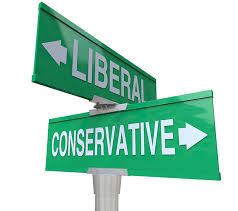
Fundamentally, the liberal thought system based on capitalism and free market economy which argues that the state should not intervene in the economy unless necessary, claims that the main duty of the state in social life is to increase individual rights and freedoms. At this point, liberalism which believes in the phenomenon of “small state”, believes that the state should fulfill its basic duty of protecting individuals and then provide the necessary conditions of the free market economy. As a result, in this view, the idea of individualism and freedom in political, philosophical, social and economic terms is dominant. According to liberals the welfare of the individual will increase the welfare of the whole society in total.
After this perspective, classical liberalism, social liberalism and similar interpretations emerged. After all, classical liberalism criticizes the state’s support for the people with low-income. In this view, there is no room for minimum wage, unions and social benefits. This is exactly why, especially after the emergence of socialism, new interpretations of liberal thought have come and social type of it has become more prevalent today. Even when we look at the practices in countries such as America and England, which we see as the strongest defenders of capitalism and liberal democracy in the world today, we see the existence of minimum wage, unionization and social assistance.
From this perspective, we understand that they need the state’s somewhat interventionist structure from time to time.
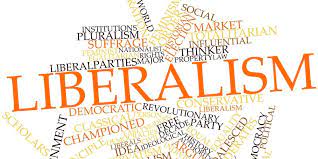
Core Principles of Liberalism: Freedom, Equality, and Rights
As we stated before, liberalism is actually has some basic principles. We will try to briefly explain these principles in items.
- Free Will: The most fundamental idea of liberalism is that every human being is born free and equal as an individual. In other words, no human being has superiority over another and must continue his life as a free individual. Although this principle seems very simple today, we need to remind that even in America in the 1960s, black individuals had to give place to whites in the busses and the global fight of Martin Luther King and Mahatma Gandhi on this issue. In other words, when liberal thought first emerged, slavery continued in the world. This view was a very innovative idea for that period.
- Small State: Since the libertarian thought system takes the individual as its basis, it has a cold view of the state. In other words, according to this view, the state restricts the freedom of the individual in the areas in which it intervenes. Therefore, the duty of the state is to ensure the rule of law and to fulfil the conditions of a free market economy economically. According to them, the state that goes beyond these functions is not liberal and restricts human freedom. As we have stated before, in the classical liberal view, there are no practices in which the state is involved, such as minimum wage and social benefits.
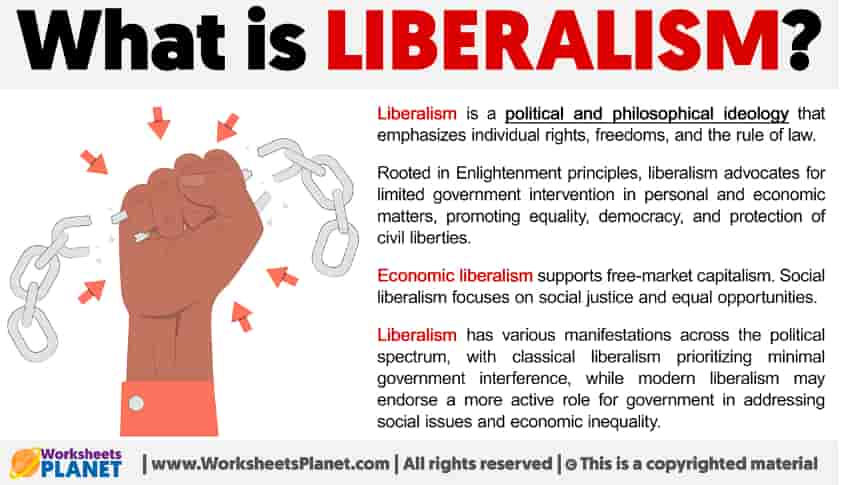
Democracy and the Rule of Law!
- Democracy and Rule of Law: This is an indispensable principle for the liberal state. In other words, in a society where there are no democratic rights, where the rule of law and the principle of separation of powers are not established, the libertarian understanding will not find a space for itself. Ensuring the independence of the judiciary and the development of democratic rights are indispensable for liberal democracy.
- International Division of Labour: This principle is actually more related to the liberal world order. In other words, especially after World War II, international division of labour and support organizations were established as a result of liberal thought in order to prevent similar disasters from occurring again. Global institutions such as the World Bank, World Health Organization, World Trade Organization and IMF and other organizations are institutions of the liberal world order. These institutions are important liberal democratic institutions that contribute to increasing cooperation by solving problems between countries.
Challenges to Liberalism: Debates in the 21st Century
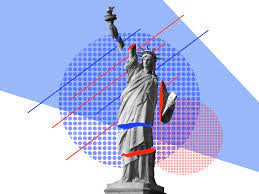
As we have stated before, it is not possible to sustain human life in an environment where there are no today’s indispensable institutions such as social assistance and unionization. On the other hand, it is normal
for classical liberalism to be criticized considering that the economic crises that shook the world economies globally, such as the Great Depression of 1929 and the Oil Crisis of 1970, were overcome with state interventions and Keynesian policies. In this context, classical liberal views have developed and transformed over time in the light of these developments.
The new Neo Liberal thought movement which can also be called social liberalism and partially includes the state, emerged in the 1980s. After the oil crisis of the 1970s began to be overcome, neo-classical movements led by the Reagan governments in the USA and Thatcher governments in the UK gained importance. In this context, in this neo-classical period, where classical economic policies were referred to by reducing taxes, privatizations and highlighting the private sector, neo-liberal views also came to the fore. In other words, neo-liberalism is actually a reinterpretation of classical liberalism which disappeared from the agenda in the 1970s and emerged as social liberalism in the early 1980s.
